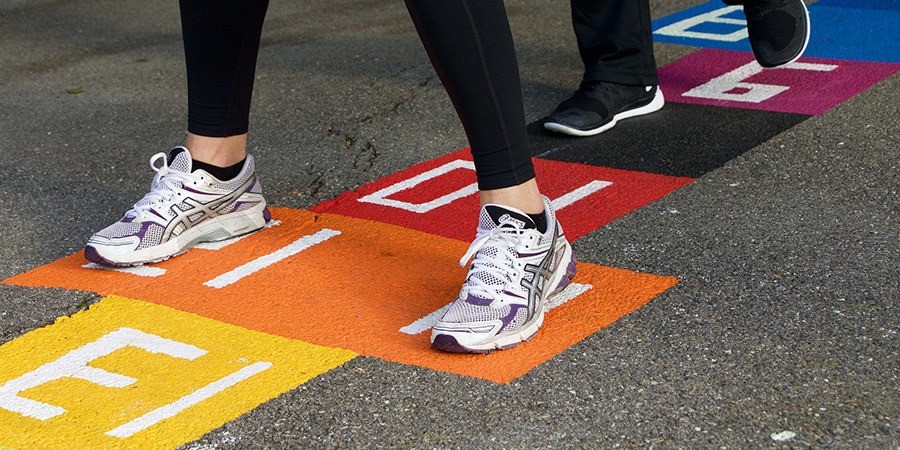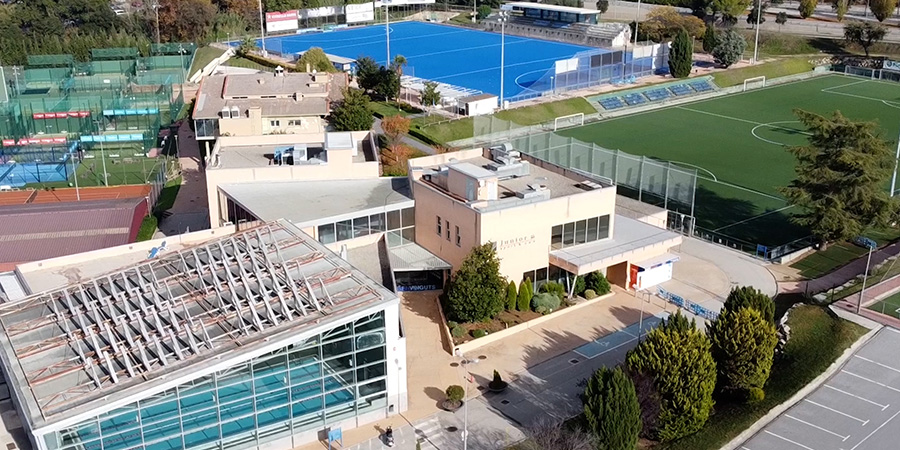Postgraduate in Psychomotor Intervention (0-6 Years Old)
Faculty of Communication Sciences
Reasons to take this postgraduate degree

Teaching staff
The postgraduate programme is taught by professionals specialised in the different fields covered on the course, who combine their teaching with professional practice with children from 0 to 6 years old.

Individual support and guidanc
We guarantee small class groups, which means students receive individual support and guidance adapted to their learning interests and goals, as well as advice on professional practice.

Facilities
The postgraduate degree will be taught on-site on the Sant Cugat Campus and at the Junior Club in Sant Cugat del Vallès. The indoor and outdoor facilities allow for a combination of theoretical and practical learning in each of the areas covered on the course.

Work placements in professional centres
In the second semester, students carry out a work placement in an educational or therapeutic centre, proposed by the students or assigned by the postgraduate coordinator, whereby they can observe and take part in professional practice in the educational or therapeutic field.
We foster motor development using the possibilities offered by the environment, as well as the great wealth of resources and strategies to offer a meaningful and quality education
We emphasise the fundamental building blocks of motor development and apply the richness of its varied content, especially play, body language and creative dance; perceptual-motor or sensory stimulation activities, as well as activities in nature and water and the enrichment of outdoor spaces.
Presentation
The Postgraduate Degree in Psychomotor Intervention for children from 0 to 6 years of age is based on the concept of a holistic and integral physical education, which supports a child's development from birth and stimulates their balanced growth and emotional well-being. This postgraduate programme provides our students with the tools they need to carry out a quality, comprehensive and educational intervention, based on holistic approaches and proposals that can be initiated through movement and corporal mediation.
We emphasise the fundamental building blocks of motor development and apply the richness of its varied content, especially play, body language and creative dance, as well as activities in nature and water and the enrichment of outdoor spaces.
Objectives
- To understand and recognise motor education as a fundamental part of children’s holistic education.
- To develop psychomotor intervention and early detection programmes to be included as part of early childhood education curriculums.
- To understand and assess the bases of perceptual-motor development and students’ basic motor behaviour.
- To understand and adapt the methodological principles that determine educational intervention in psychomotor education (0-6 years).
- To present the patterns of child development (0-6 years) in terms of sensory-perceptual-motor and socio-affective-motor skills.
Practical and innovative methodology
- Compulsory work placements
- Dynamic classes that encourage participation
- Individual support and small groups
- Learning outside the classroom taking advantage of the possibilities offered by the environment (Junior Club, natural environment)
Assessment
- Ongoing assessment
- Learning journal or reflection notebook: a personal record that encourages reflection, study, analysis, research and self-awareness, fostering the encounter between academic learning and real-world experience.
- Self-assessment
- Compulsory work placement
- Final work placement report
- Attendance to at least 80% of the on-site classes
Who is this postgraduate degree aimed at? Prospective students
Professionals from the world of pre-primary and primary education. This programme is also aimed at professionals from other fields of knowledge such as psychology or physiotherapy, occupational therapists, as well as early childhood education specialists.
Internship
This module offers students the opportunity to work in an educational or therapeutic centre. The aim is to become familiar with observation and psychomotor intervention practices in children with and without difficulties. Students are supported by a professional and supervised by a tutor throughout their placement.
The specific objectives of this module are:
- To understand psychomotor intervention in educational and/or therapeutic settings.
- To assess psychomotor intervention, investigate new scientific proposals and justify their importance in child development.
- To explore methodological resources and assess the viability of motor and physical mediation proposals for both group and individual intervention.
- To master observation and diagnostic tools.
- To develop the necessary professional and personal skills in the field of psychomotor intervention.
- To draw conclusions for professional practice as a specialist in the psychomotor field.
Students will be required to write a final report which must include, among other aspects: the context of the internship centre; observation, diagnosis, classroom or case intervention and assessment practices; analysis of the role as a professional; conclusions.
Prerequisites & admissions
Graduates from the following programmes:
- Pre-primary + primary education
- Psychology
- Physiotherapy
- Occupational therapy
- Psychology
Higher level vocational training course in:
- Pre-primary education
- Sports and physical education
- Psychology and social and behavioural sciences
Admissions procedure
If you have decided to apply for the postgraduate degree, please follow these steps to complete your admissions process. We recommend you apply as soon as possible as places are limited.
Step one. Application for admission (online)
Step two. Submitting your documentation
Students with an official university degree from within the European Union
An attested original photocopy of your degree certificate or the homologation of the degree, or an original attested photocopy of the receipt for payment of the fee for issuing your degree certificate.
If you have completed a higher level vocational training course, you need to submit an attested photocopy of your original certificate, or an original attested photocopy of the receipt for payment of the fee for issuing your certificate.
An attested original photocopy of your academic transcript displaying your marks for the university studies you have completed.
Students with an official university degree from outside the European Union
- A legalised original photocopy of your degree certificate
- A legalised original photocopy of your academic transcript for the university studies you have completed
- A certificate issued by the university of origin indicating that the degree allows the student to continue on to postgraduate studies in the country in which it was issued.
In all cases:
- A photocopy of your national ID card (DNI) or passport
- An up-to-date CV
- A letter of motivation
- An attested photocopy of any other university degrees, including postgraduate degrees. If the original language of the documents is not Spanish, then please provide a sworn translation of your degree certificate into Spanish, and also of your transcript.
Step three. Interview
Interview with the coordinator of the postgraduate degree.
Reservation and enrolment
Admission
After being admitted, the candidate will be able to start the process of reserving a place and enrolling on the course.
Reservation and enrolment
After receiving the official letter of admission, candidates must pay a deposit of 20% of the total cost of the postgraduate course within 15 calendar days in order to reserve their place.
Once they are enrolled, the candidate can pay for the remaining 80% of the course.
Grants & financial aid
Funding
UIC Barcelona holds agreements with various banks that provide funding for your studies with special discounts. If you would like to find out about the terms and conditions for funding you can do so on the following webpage.
Funding and agreements
Discounts and waiver of fees
If you are a member of the UIC Barcelona Alumni and Friends Association, you are eligible for a 5% discount.
Additionally, some groups may be eligible for special discounts for specific programmes, which are specified on each course brochure.